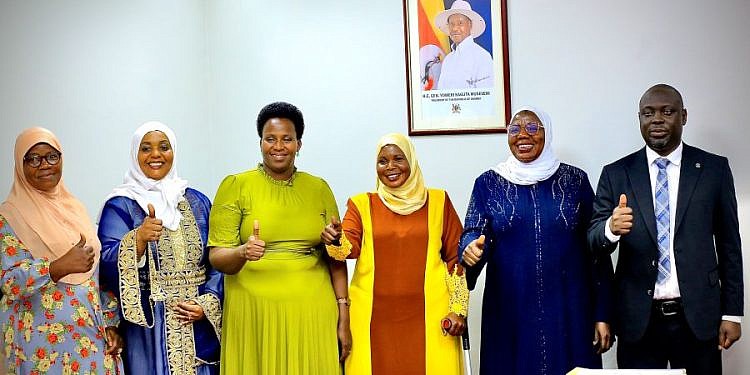President Yoweri Kaguta Museveni has fulfilled his financial commitment to support economic empowerment among marginalized communities, disbursing a total of Shs 3.2 billion to Muslim Women SACCOs and ghetto-based SACCOs in the Busoga Sub-region.
The financial package includes Shs 2 billion for Muslim Women SACCOs across the country and Shs 1.2 billion designated for ghetto SACCOs operating in the 12 districts and the city within Busoga. The funds were officially handed over during a ceremony at Okello House in Nakasero, Kampala, by State House Comptroller Jane Barekye, who represented the President.
Ms. Barekye clarified that the funds are not a personal donation but a government-backed initiative aimed at fostering economic self-reliance. She explained that ghetto SACCO members will be able to borrow and invest the money, with repayment due after one year at a 6 percent annual interest rate. For Muslim Women SACCOs, a 6 percent annual service fee will apply instead.
“This money is strictly to improve livelihoods and must be used responsibly. Anyone who misuses it will be held accountable and prosecuted,” Barekye warned.
The event was attended by Haji Faruk Kirunda, the Special Presidential Assistant on Press and Mobilization, who also serves as the national coordinator for both categories of SACCOs. Kirunda, along with Maj. Gen. Christopher Ddamulira, Director of Crime Intelligence, has been tasked with overseeing the program in the Busoga Sub-region.
Kirunda reiterated that the financial support is not tied to politics or elections, but is based on development proposals submitted by the communities themselves.
“This support is part of a government promise made earlier. It’s not political—it’s developmental,” Kirunda emphasized. “The president directed that a monitoring system be established to ensure the funds are used for the intended purpose.”
He announced that annual audits will be conducted to assess how the SACCOs are utilizing the funds, and warned that no adjustments to the 6 percent interest rate would be permitted without the President’s express approval.
Hajjat Sofia Kenyangi, the National Chairperson of the Uganda Muslim Women Council, thanked President Museveni for honoring his pledge and urged recipients to use the funds transparently and productively.
“We appreciate this timely support, which will strengthen economic independence for many women across the country,” Kenyangi said.
This initiative forms part of the government’s broader strategy to enhance inclusive economic development, especially among traditionally underserved and vulnerable groups in Uganda.




